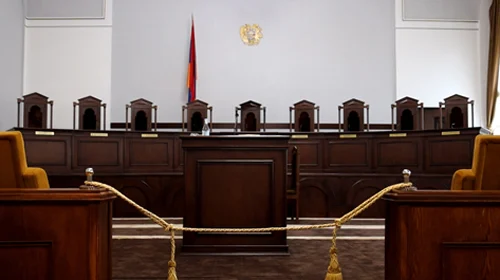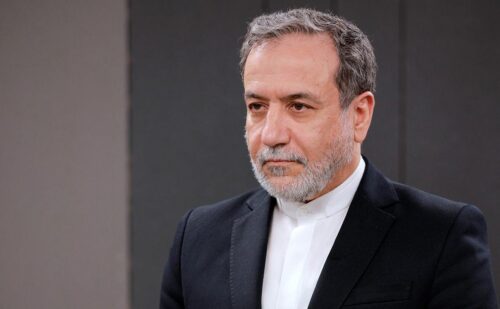
The unpatriotic behavior of the political Constitutional Court
The Constitutional Court decided that the Armenian-Azerbaijani border delimitation regulation corresponds to the Armenian Constitution. In recent days, there has been a lot of talk about this topic. Let’s try to understand what it actually was, and for whom it was primarily beneficial.
Let’s note in advance that the regulation is not a new document; it is a direct result of a number of processes, let’s say a continuation. As is known, the Armenian-Azerbaijani border delimitation committees have met 10 times, but before the regulation came out, on April 19, territories from the sovereign territory of Armenia had already been ceded to Azerbaijan—on what principle, no factual justification for this has been presented by Pashinyan, except for the claim about the Alma-Ata Declaration. In other words, it turns out that an interstate border was established and the protocol regarding that process was not submitted for internal ratification, which comes to confirm the claims that this whole process is unconstitutional. To put it simply, first, the already discussed and prepared documents were to be ratified. Only after that should the next steps have been taken. As we can see, this is a serious minefield for the existence of our statehood.
In fact, the court came to a similar decision after deliberating on the subject for only three days. By the way, let us mention that three Constitutional Court judges, namely Hrayr Tovmasyan, Vahe Grigoryan and Davit Khachaturyan, wrote a special opinion. It is, of course, understandable that the last two are Nikol Pashinyan’s “pocket” judges, who exclusively serve the current authorities. They wrote a text that is to Pashinyan’s liking. Back then, when experts talked about the total change of the composition of the Constitutional Court by the government and the risks of appointing their own judges and the danger inherent in it, some people voiced opposing opinions that there is no such thing, that judges simply resigned from their positions of their own accord, while now it becomes clear what goal and plan Pashinyan actually had: to legitimize his anti-state moves.
In this episode, the fact that the Armenian authorities are particularly hasty in ratifying the regulation is noteworthy and rather strange, although there were serious problematic points, both regarding the sovereignty of the Republic of Armenia, territorial changes, and territorial integrity. However, the judges had no scruples about this. Let us note that the regulation can come into force after being ratified in both states, while in Azerbaijan the deputies are not even familiar with that document.
It is obvious that the Constitutional Court’s decision was a direct message to Aliyev, according to which Pashinyan clearly says that he does not see a problem with the legalization of the process, moreover, Aliyev is clearly told that no unconstitutional problems will arise after the conclusion of the “peace treaty”—let’s just seal it. Pashinyan tells Azerbaijan that the introduction of the Declaration of Independence is no longer an obstacle.
Although since the end of August, both Nikol Pashinyan and Ararat Mirzoyan have announced that they are ready to sign the peace treaty under the wording they have reached a preliminary agreement on, the Azerbaijani side regularly gives a negative response, raising the issue of changing the Armenian Constitution. Moreover, Aliyev is not at all inclined to take a concrete step toward signing the agreement. The latter shows that he does not want such a document to be signed; it is not a priority for him. With this behavior, he once again simply humiliates Pashinyan, showing that “whenever and whatever I want, I can take”. While, instead of retorting, Pashinyan smiles broadly at Erdogan—here it is very appropriate to remember that in the last three years, the Armenian authorities have been constantly announcing that the agreement will be signed by the end of the year, but nothing is happening “on the ground”.
Unlike Aliyev, Pashinyan desperately needs a document on which “Peace Treaty” will be written; this is a matter of vital importance for him. And it is not important at all what the content of the text of that agreement will be or under what conditions for the Armenian side it will be signed. No matter how much Pashinyan and his teammates utter grandiose statements about the steadfastness of Armenian sovereignty and territorial integrity, Pashinyan needs that document in order to show the outside world (his masters) and Armenian society that “look, I promised peace, and I brought it,” and be re-elected through this manipulation.
You may remember that before Pashinyan’s latest speech at the U.N., the authorities had a completely different narrative regarding the Constitution, when they announced that “we currently have a problem of changing the Constitution, but it is not a demand from outside—in this case, Azerbaijan—we have been talking about it since 2018,” or claimed that “the amendment to the Constitution is the internal affairs of the Republic of Armenia, in which no one can interfere.” Already at the U.N., Pashinyan openly stated that “if the Constitutional Court sees a problem with the ratification of the treaty, we will change the Constitution.” Thus, Pashinyan indirectly admits that the demand to make changes to the Constitution, and more specifically to the Declaration of Independence, came from Azerbaijan, and the rest of the manipulative actions are simple magic.
We can unequivocally state that the decision made by the Constitutional Court was a document containing a deep political component, with which the Constitutional Court of Armenia gives a “green light” to the Azerbaijani side, implying that there can be no problems with the legal regulations of Armenia as long as the like of Nikol Pashinyan is in the driving seat of the country. And the tragedy of the situation becomes even more terrible when we see that even Azerbaijan treats the Declaration of Independence and legal acts of the Republic of Armenia with greater respect than the Armenian authorities, especially the RA Constitutional Court.
Armen Hovasapyan


